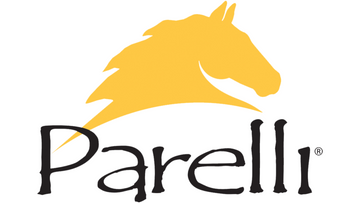
Is your horse suddenly biting, and you don’t know why? Or maybe you have a new horse with a biting problem and don’t know how to handle this type of behavior. Believe it or not, lots of horses bite.
Biting is a part of natural herd behavior as horses play dominance game to establish pecking order within the herd. In addition, many young horses explore their environment with their mouths. Biting or nibbling on things is one way for them to investigate something. For younger horses, biting and the resulting reaction often become a game. If you have watched a foal with its mother, you've probably witnessed the mare stopping it from biting when it gets too aggressive. Similarly, you need to understand why horses bite and how to set a safe boundary with your horse.
Understanding Why Horses Bite People
Horses will bite for several reasons other than natural exploration. Aggression, dominance, affection, playing, and pain can motivate your horse to bite you. As a responsible horse owner, it will be your job to determine the root cause and find a solution. If not addressed, it is very easy for biting to become a bad habit.
Reasons Your Horse is Biting You
As we mentioned, it is your job to determine the underlying reason for this bad habit. If you need more clarification, seek behavioral help from a Licensed Parelli Professionals or ask your veterinarian for advice related to any physical challenges. Here are some of the most common reasons horses bite people.
Aggressive Horse Biting
One of the most difficult reasons to address is aggressive biting. Aggressive biting is more common in stallions but can develop in any horse. You'll notice most horses will show signs of aggression before biting, like pining back their ears and stomping their feet. Most aggressive biters have excessive energy and turn to biting to entertain themselves. Many owners notice this behavior increases during stall rest or limited turnout.
This type of biting can also stem from a negative experience which has led to other behavioral problems.
Trying to Communicate
Horses communicate with body language. Biting within a herd is a sign of the horses communicating with each other (they are actually playing Game #2 in the Parelli Levels Program, the Porcupine Game). While this behavior is not a problem in the herd, it should be discouraged when it comes to biting people. This behavior clearly demonstrates a lack of respect for you as the leader. To keep your response fair and non-predatory, remember the motto, “Backing cures biting.”
Playful Horse Biting
Some horses will bite to try to instigate play with you. While many people consider this to be cute when they are foals, the behavior can quickly escalate with full-grown horses. Remember the horse who moves the other horse’s feet is the leader, and it’s important for the human to take this lead role.
Horse Biting from Discomfort
If your horse does not typically bite, it could signify discomfort or pain. For example, your horse is generally calm and quiet when you saddle them, but today they swung their head around and tried to bite you when you girthed up. There might be a pain in the horse's back, stomach or girth area, causing them to try to protect themselves. If you believe your horse might be in pain, consult your veterinarian for a complete evaluation. Also consider whether you may need to shim your saddle or look at a different saddle fit to help your horse find comfort while being ridden.
Horse Biting from Illness
Illnesses or infections can change your horse's normal behavior. If you believe the biting is from an illness, evaluate your horse's overall demeanor and health, note any changes and schedule an appointment with your veterinarian.
How to stop horse biting
Once you know why your horse is biting, you can put together a plan to address the problem. It's important to stay in the moment and respond appropriately and without emotion in order to eliminate the behavior before it escalates.
Be Consistent
If you are trying to stop a bad habit, it's important to be consistent. Your horse shouldn't be allowed to bite, ever. Remember what Pat Parelli says, “our horses are like computers – they may not do what we want, but they will always do what we ask or what we program them to do.” When you are reprogramming negative behavior it’s important to stay consistent to build new positive patterns and habits.
Be the leader your horse needs
One of the important skills you will learn in the Parelli Program is how to be the leader your horse needs you to be. When you establish yourself as a leader by winning the Seven Games, your horse will learn to trust and respect you no matter the situation. Establishing yourself as a trustworthy leader and gaining respect from your horse takes time and a plan, but the Parelli Levels Program is here to guide you every step of the way.
Aggressive horses may even respond with biting to question your leadership. This makes it even more important to be a consistent leader.
Balance rapport & respect
Rapport and respect come together once you've built your horse’s confidence and established yourself as your horse's leader. They know they can trust you and respect your communication because you have taken the time to demonstrate and practice your leadership through playing the Seven Games. Just like in a herd, as the leader, you initiate contact and set the boundaries of physical interaction. You will never see a young horse approach the alpha mare in the herd and start biting her because they respect her and her leadership position.
Exercise your horse
Whether from poor weather or lack of time, excess energy can lead to bad habits because your horse is bored. Make sure your horse gets plenty of exercise during turnout or by playing first on the ground and then riding. This type of exercise allows them healthily expend energy.
Winter months can make working with your horse more difficult. If your horse is stuck in a stall or small turnout, try to find some constructive ways to manage your horse’s mental, emotional and physical energy. You can also do simple On Line exercises, like backing, leading, yielding the forehand and hindquarters, and flexing right in the aisleway of your barn.
What to do if your horse bites
Horses bite for various reasons, including dominance, exploring, playing, aggression, pain, and illness. Once you discover the root cause of the biting, it is important to address it. Becoming a leader and gaining your horse's trust and respect will go a long way in eliminating negative behaviors in and out of the barn. The Parelli Seven Games are an excellent place to start when building a relationship with your horse based on trust and respect.








Thank you so much, I am a long, long time parelli student at the age of 82 now. And appreciate the little lesson tidbits of information you send monthly.